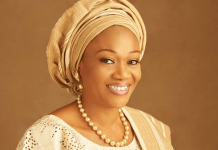The Monii Development Consult (MDC), a research organisation, urges government at all levels to prioritise gender-responsive plans before, during, and after a crisis such as a pandemic or a natural disaster.
Mrs Amy Oyekunle, Lead Consultant with the organisation, made the call in Lagos at a Preliminary Findings Review Meeting on Gender Impact of and COVID-19 Research in Nigeria.
Oyekunle said that prioritising gender-responsive plans would help government make an all-inclusive policy that would incorporate everyone and leave no one behind.
She said that such all-inclusive policy would also mitigate the negative impact of such crisis on the lives of all genders – women, men, boys and girls.

Amy said that a gender-responsive pandemic plan focuses on the intersectional needs of women, men, and gender minorities, in planning, data collection, response and recovery.
She said that a team of researchers conducted a gender analysis to identify and document the gendered dynamics of COVID-19 and gaps in preparedness and response.
“The study looked at how the COVID-19 pandemic affected men, women, boys, girls and persons with disabilities (PWDs); and how it was influencing government response or how government’s response was addressing the pandemic.
“In the findings, the pandemic, though considered negative by all indications brought out many gaps particularly on gender..
“The pandemic influenced and changed gender roles and it changed health seeking behaviour as a lot of people especially the women could not access maternal care or sexual reproductive care.
“The pandemic increased the rate of self-medication, girls could not access sanitary napkins and people did not also trust the government in terms of response and intervention like the issue of palliatives.
“On the vaccine, there are lots of conceptions around social and religious beliefs, also PWDs also felt they were not carried along in terms of COVID-19 messages and information, ” she said.
Amy lamented that majority of the government policies on the COVID-19 pandemic seemed gender neutral.
According to her, the policies seem as if COVID-19 is a genderless pandemic and it’s been addressed an genderless perspective.
“Nothing is gender neutral, as a government, there is the need for research and gender analyses to create a holistic and inclusive gender-responsive pandemic plan.
“You cannot have a plan and develop policies blindly. If we fail to take a gender-responsive approach, it will have negative impact on all genders.
“Today, it is COVID-19 pandemic, tomorrow it could be something else – Ebola or Lassa fever out break or whatever. So, we need to be prepared,” she said.
Also speaking, Mr Babatunde Safiu, Legal Adviser, Lagos State Office for Disability Affairs (LASODA( , said the state government made efforts to enroll no fewer than 2,500 PWDs into the health insurance scheme free of charge.
“That enrollment increased the access to healthcare but there are some peculiar medical conditions that are not covered by the scheme.
“Aside the food palliative, government is yet to assist those PWDs who list their businesses and source of income as a result of the COVID-19 pandemic. We urge them to consider these issues,”Safiu said.
Mr Basit Baruwa, a Director in the state’s Ministry of Economic Planning and Budget, said that the Lagos State government reviewed the budget as a result of the pandemic to intervene appropriately.
He said that the state government was also gender focused as it prioritises gender-based discussions and actions in the state. (NAN)










